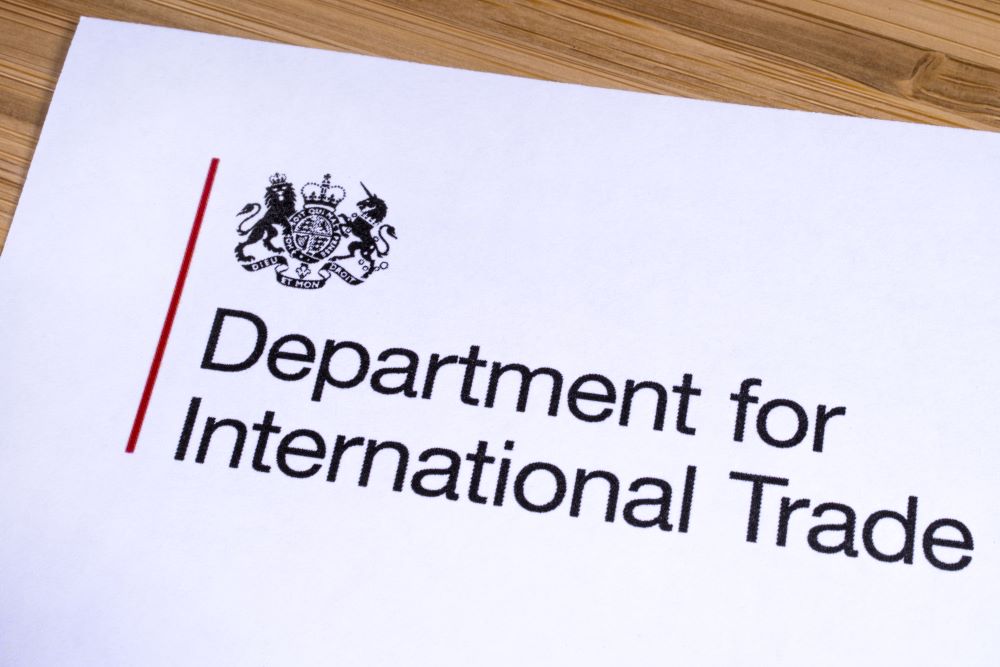
The Department for International Trade (DIT) has published its outcomes plan for 2021-22 and stated its ambition to become the leading trade and investment outfit in the world.
Stressing the opportunities available as an independent trading nation to drive forward an exports-led economic recovery, the DIT has outlined four main objectives for the year ahead.
1. Free Trade Agreements
The DIT is aiming to secure world-class free trade agreements and reduce market access barriers, to the benefit of consumers and businesses, it said in a statement launching the plan.
As well as a recent agreement in principle with Australia, negotiations are underway with New Zealand and the US.
The UK has also signalled an increased focus on the Indo-Pacific region by applying for membership of the Comprehensive and Progressive Agreement for Trans-Pacific Partnership (CPTPP), as previously reported in the IOE&IT Daily Update.
Existing FTAs with Canada and Mexico will be expanded, and negotiations for a new Digital Economy Agreement with Singapore will aim to support accession to the CPTPP.
2. Spread economic growth
The strategy targets delivering economic growth to all the nations and regions of the UK by attracting and retaining inward investment.
A new Investment Strategy, via the new Office for Investment, will aim to secure investment for the untapped potential outside of, but also including, the South East.
3. Trade opportunities
UK businesses will be supported to take full advantage of trade opportunities, including those arising from FTAs.
DIT is contributing to the cross-government ‘Build Back Better’ plan for growth with a refreshed export strategy.
A new integrated and enhanced export promotion campaign focuses on priority sectors, including food and drink, financial and professional services, creative industries, education, tech and digital, consumer goods and clean growth.
It will be supported through the prime minister’s trade envoys, HMTCs, export champions, and business facing advisors.
4. Rules-based trading
The UK will champion the rules-based international trading system and protect UK businesses from unfair trade practices.
The ongoing UK presidency of the G7 will be utilised to make the case for free and fair trade. The UK also has ownership of the G7 trade track and relationships within the G20 and WTO to make its case.
US talks
The new plan comes following a successful trip by the department’s head, Liz Truss, to the US last week.
The DIT has reported that Truss concluded a successful meeting with US Trade Representative Katherine Tai.
Following the deal to agree a five-year suspension of tariffs over the Airbus-Boeing dispute, the trade ministers agreed that this was a platform for working together to address other shared challenges.
It was agreed that the UK and US should not lead to a race to the bottom on standards and they committed to tackling threats to free and fair trade, including combating market-distorting practices such as industrial subsidies and steel overcapacity.
Both recognised that the UK and US have an interest in reviving industries, building resilience to withstand future crises, and strengthening innovation and competitiveness together.



